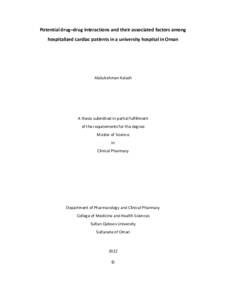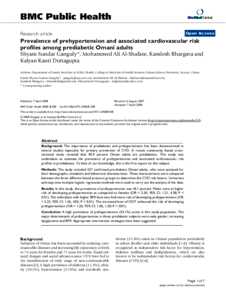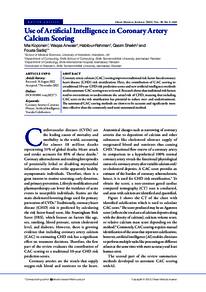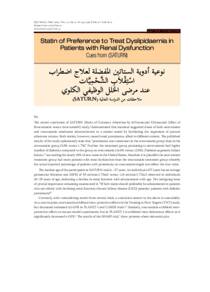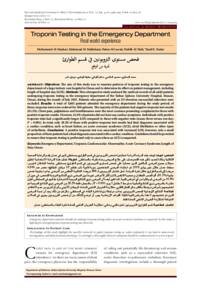وثيقة
Potential drug–drug interactions and their associated factors among hospitalized cardiac patients in a university hospital in Oman.
عناوين أخرى
التفاعلات الدوائية المحتملة والعوامل المرتبطة بها بين مرضى القلب النزلاء في مستشفى جامعي في سلطنة عمان
الناشر
Sultan Qaboos University.
ميلادي
2022
اللغة
الأنجليزية
الملخص الإنجليزي
Background:
Cardiovascular diseases (CVDs) are responsible for a significant proportion of mortalities
worldwide. Elderlies are the most affected by CVDs, and due to factors such as
polypharmacy, multimorbidity, and age-related changes in drugs availability and
metabolism, they are highly susceptible to the incidence of drug-drug interactions (DDIs).
DDIs are among the many drug-related problems leading to negative outcomes among
inpatients and outpatients. Thus, it is important to investigate the incidence, involved
drugs, and factors related to DDIs to properly optimize pharmacotherapy regimens for
these patients.
Aim:
To find out the incidence of DDIs, drugs most frequently implicated, and significant
predictors associated with these interactions among hospitalized patients in the
cardiology unit of Sultan Qaboos University Hospital (SQUH) in Muscat, Oman.
Methods:
This retrospective cross-sectional study included 215 patients. Micromedex Drug-Reax®
was used to identify potential DDIs. Data extracted from patients' medical records was
collected and analyzed. Univariable and multivariable linear regression was applied to
determine the predictors of the total number of the observed DDIs.
Results:
A total of 2057 DDIs were identified, with a median of 9 DDIs per patient (IQR = 12-5).
Patients with at least one drug-drug interaction accounted for 97.2% of all the included
patients. Majority of DDIs were of major severity (52.6%), fair level of documentation
(45.5%), and pharmacodynamic basis (64.8%). Interactions between Atorvastatin and
Clopidogrel were the most frequently observed (9%). Out of all the detected DDIs, around
79.6% of them included at least one antiplatelet. Having diabetes mellitus as a
comorbidity (β = 2.564, p < 0.001) and number of drugs taken during the hospitalization
period (β = 0.562, p < 0.001) were factors positively associated with the frequency of DDIs.
Conclusion:
DDIs were highly prevalent among hospitalized patients in the cardiology unit of SQUH.
Patients having diabetes mellitus as a comorbidity and with a high number of
administered drugs were at a higher risk of an increased number of DDIs.
المجموعة
URL المصدر
قالب العنصر
الرسائل والأطروحات الجامعية

